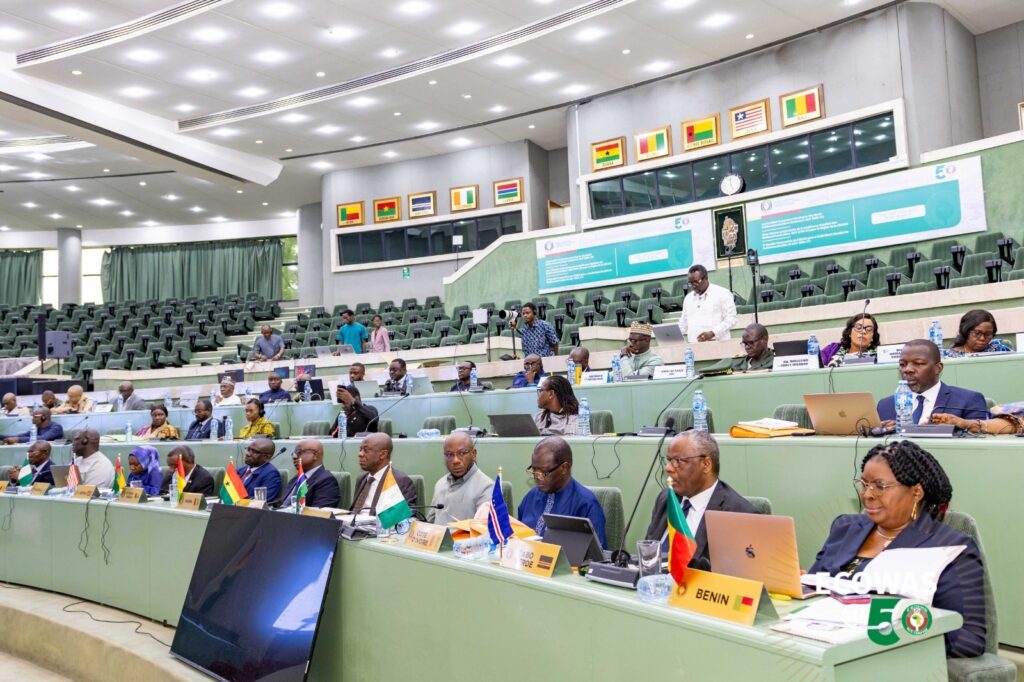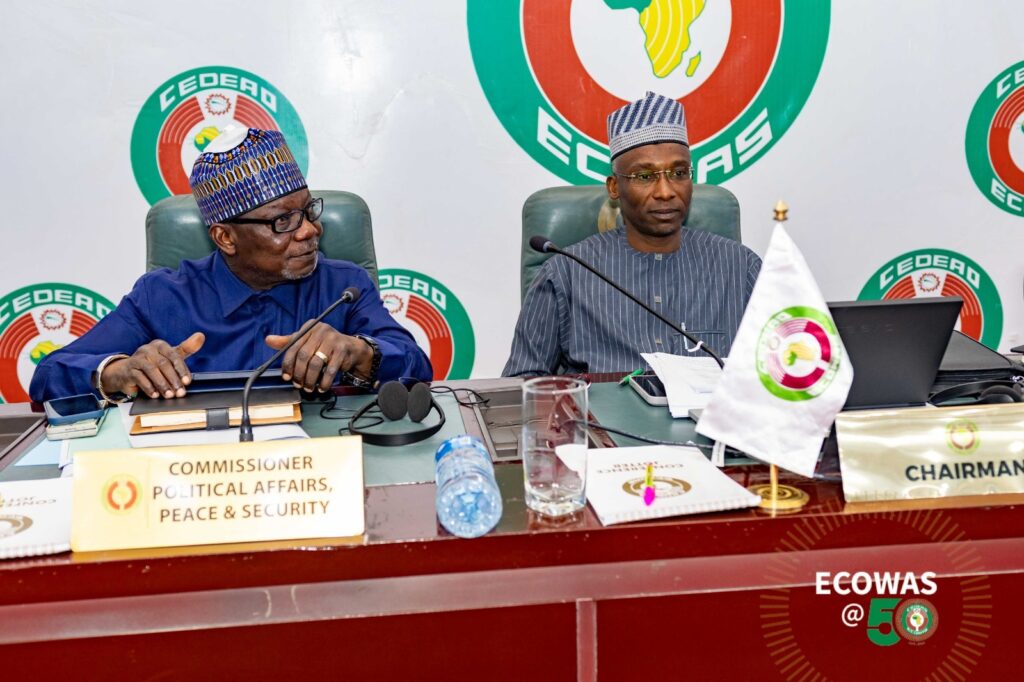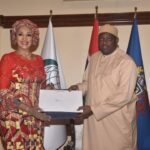ECOWAS Ambassadors Hold 42nd Mediation and Security Council Meeting in Abuja, Renew Pledge for Peace and Stability.
By Raymond Enoch
In the face of growing political volatility and persistent security crises across West Africa, top ECOWAS ambassadors and security experts converged in Abuja today for the 42nd Ordinary Session of the Mediation and Security Council (MSC) at Ambassadorial level—an exclusive high-stakes gathering aimed at steering the region back from the brink.
Hosted at the ECOWAS Commission Headquarters, the session is widely viewed as a litmus test for the regional bloc’s ability to address urgent threats—from military takeovers and democratic backsliding to violent extremism and weak governance structures.

This closed-door meeting, which brought together ambassadors from all Member States, is expected to set the tone for future interventions, with a clear focus on consolidating peace, safeguarding democratic gains, and strengthening ECOWAS’s conflict-response capacity.
Representing the President of the ECOWAS Commission, H.E. Dr. Omar Alieu Touray, the Commissioner for Political Affairs, Peace and Security, Amb. Abdel-Fatau Musah, delivered a sobering but determined message.
“Our region is at a critical juncture. The challenges we face—terrorism, unconstitutional changes of government, transnational crime—require a response that is as united as it is strategic,” Musah said. “This gathering is a reflection of our collective resolve to protect the peace, security, and democratic integrity of our Community.”

He commended Member States for remaining engaged despite internal pressures and applauded ongoing efforts to uphold the ECOWAS vision of a prosperous, integrated, and stable West Africa.
Chairing the session, Nigeria’s Permanent Representative to ECOWAS and current Chair of the Mediation and Security Council, Amb. Musa Nuhu, reaffirmed Nigeria’s leadership role in pushing the peace and security agenda forward.
“Peace and security remain at the heart of our regional priorities,” Nuhu declared. “We cannot afford complacency. The strength of ECOWAS lies in our ability to act swiftly and collectively in the face of shared threats.”
Nuhu urged his fellow envoys to move beyond dialogue and work toward implementable solutions, noting that time is of the essence as tensions rise in parts of the Sahel, Gulf of Guinea, and coastal states.
Delegates are reviewing
the political transitions and instability in key Member States; the deteriorating security situation across multiple zones; the operationalization of the ECOWAS Standby Force Logistics Concept; and the establishment of Logistics Depot Policies to support peacekeeping readiness and humanitarian coordination.
The session arrives at a time when the ECOWAS bloc is facing one of its toughest periods in recent memory. With three military-led governments (Mali, Burkina Faso, and Niger) distancing themselves from the bloc’s authority—and in some cases openly challenging it—the credibility and cohesion of ECOWAS are on the line.
Compounding the challenge is the growing threat of violent extremism in the Sahel and Lake Chad Basin, as well as economic instability exacerbating tensions in already fragile states.
A diplomat from a coastal West African country, speaking on condition of anonymity, told our reporter: “This is not business as usual. This session must produce not just communiqués—but commitments. Citizens across the region are watching.”
Outcomes from the Abuja session will be forwarded to the Ministerial and Heads of State levels, where final decisions will be made on whether to revise sanctions, expand peacekeeping operations, or adjust ECOWAS’s diplomatic posture in light of current realities.
For now, all eyes remain on the ECOWAS Commission as it tries to balance dialogue with deterrence—while reaffirming its role as the leading peace and security actor in the subregion.









